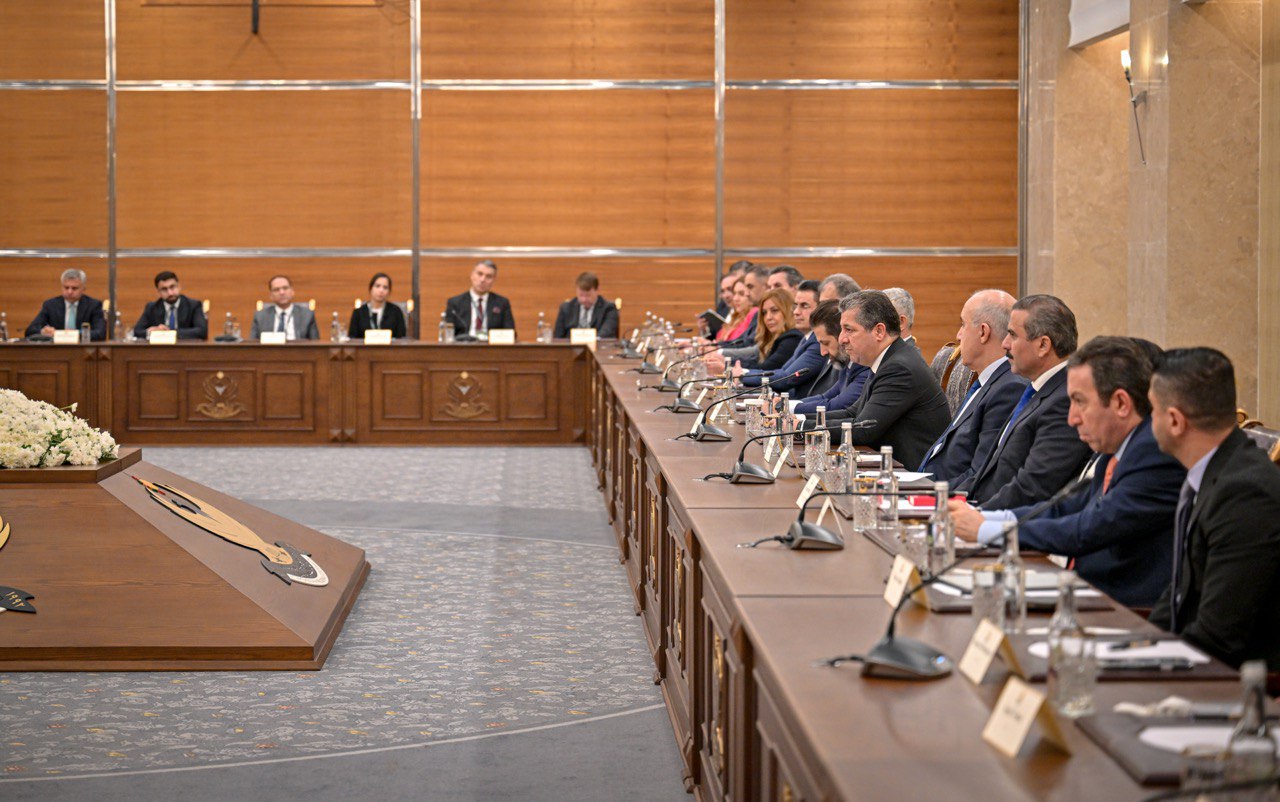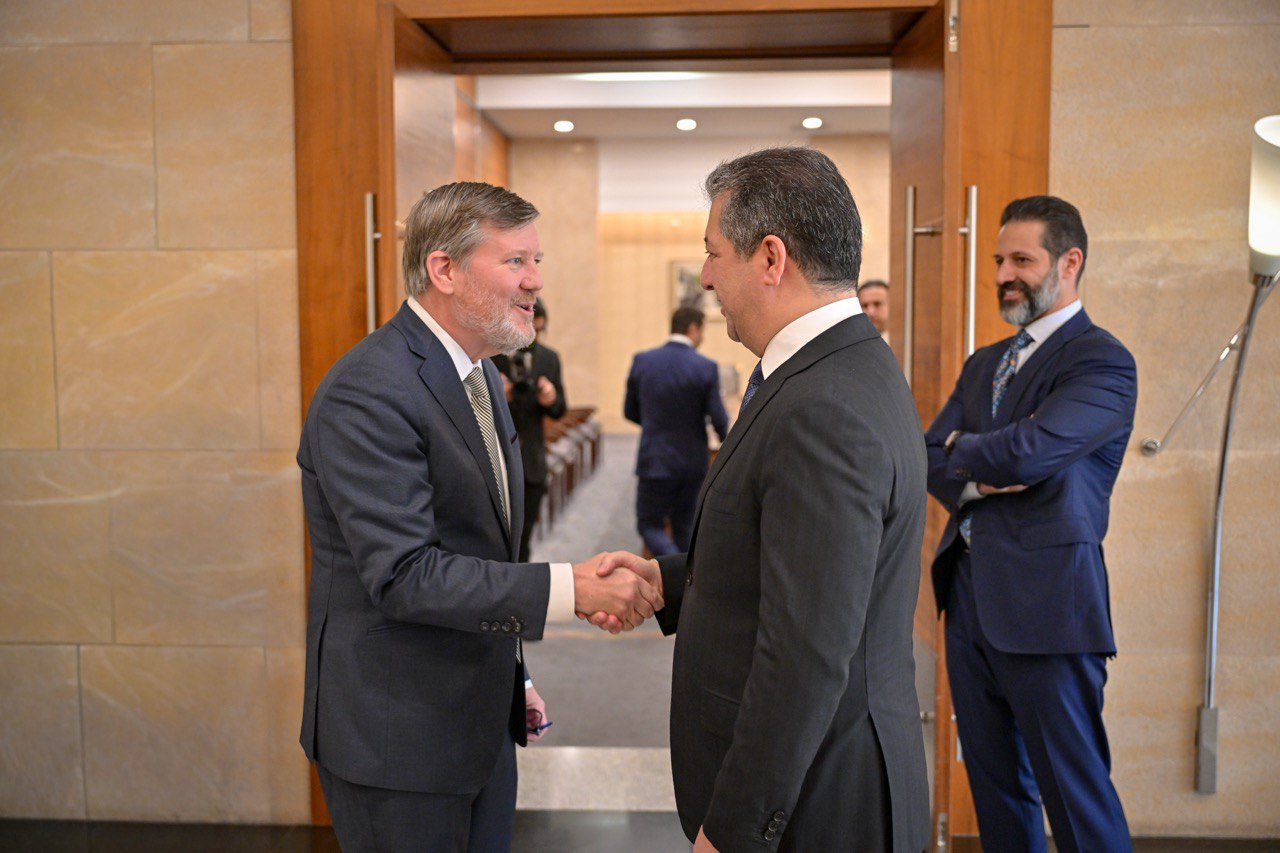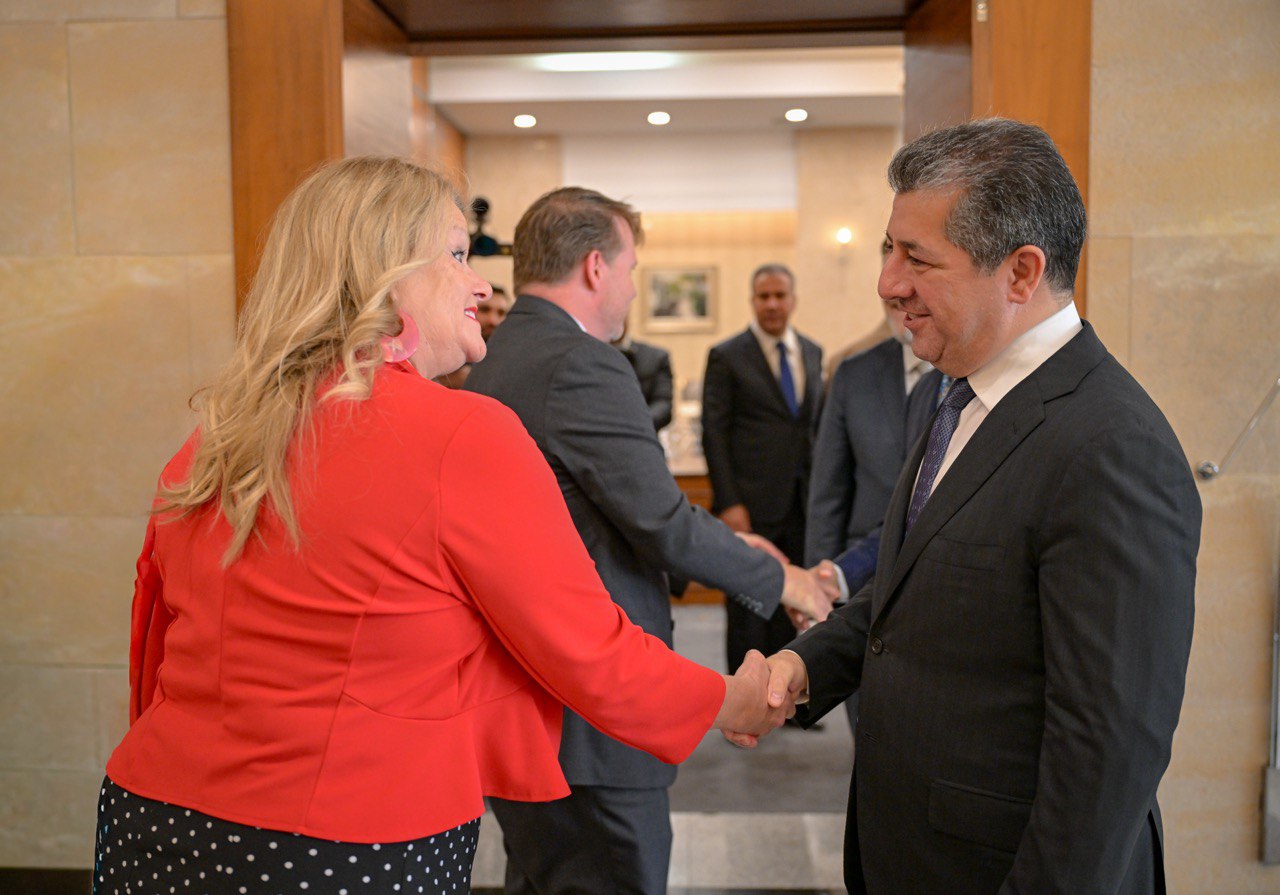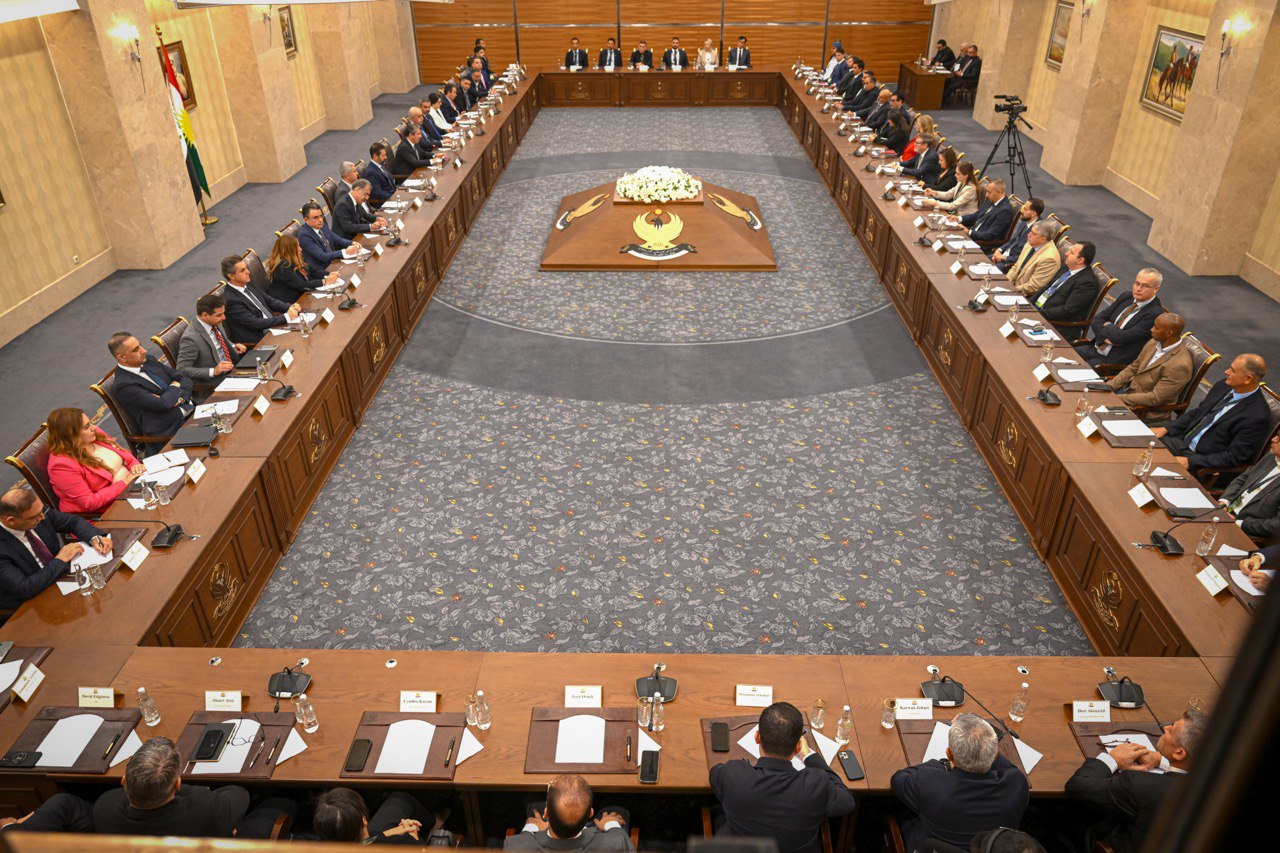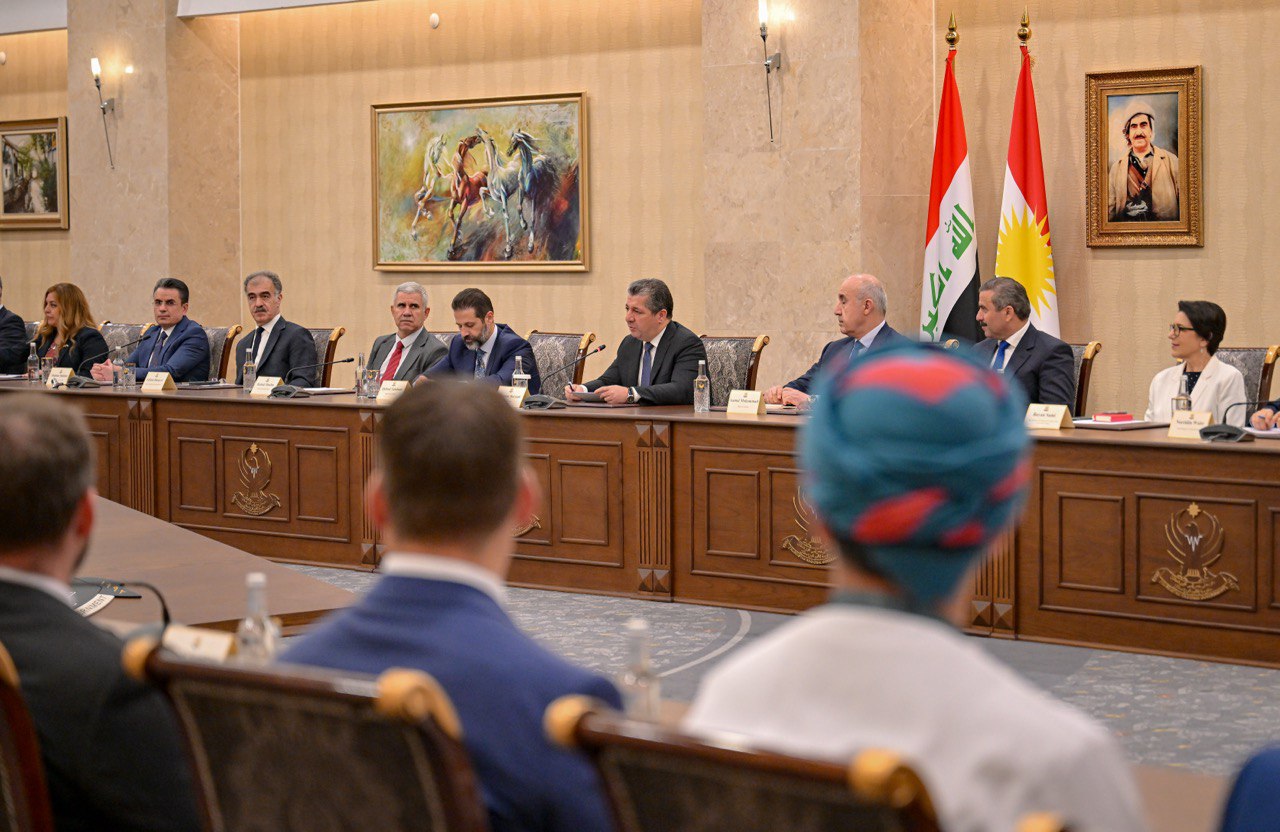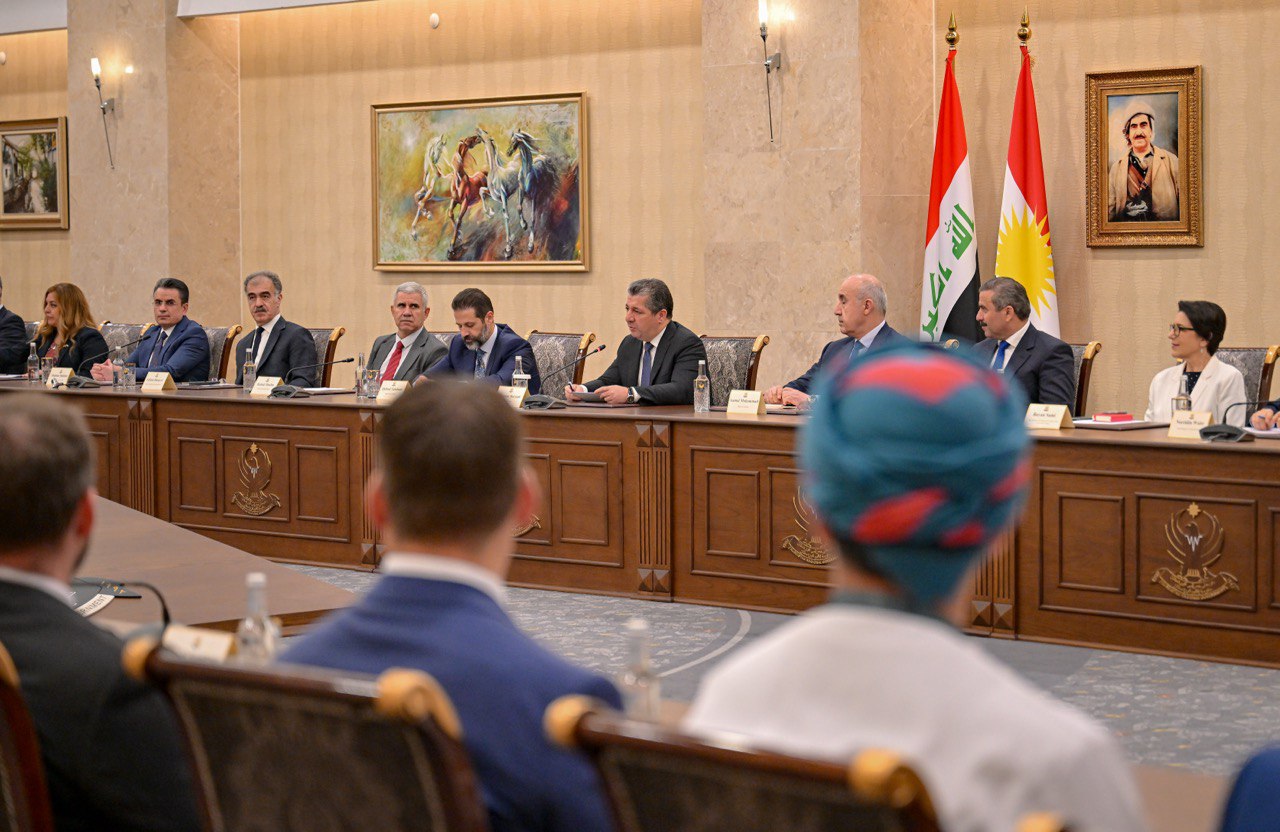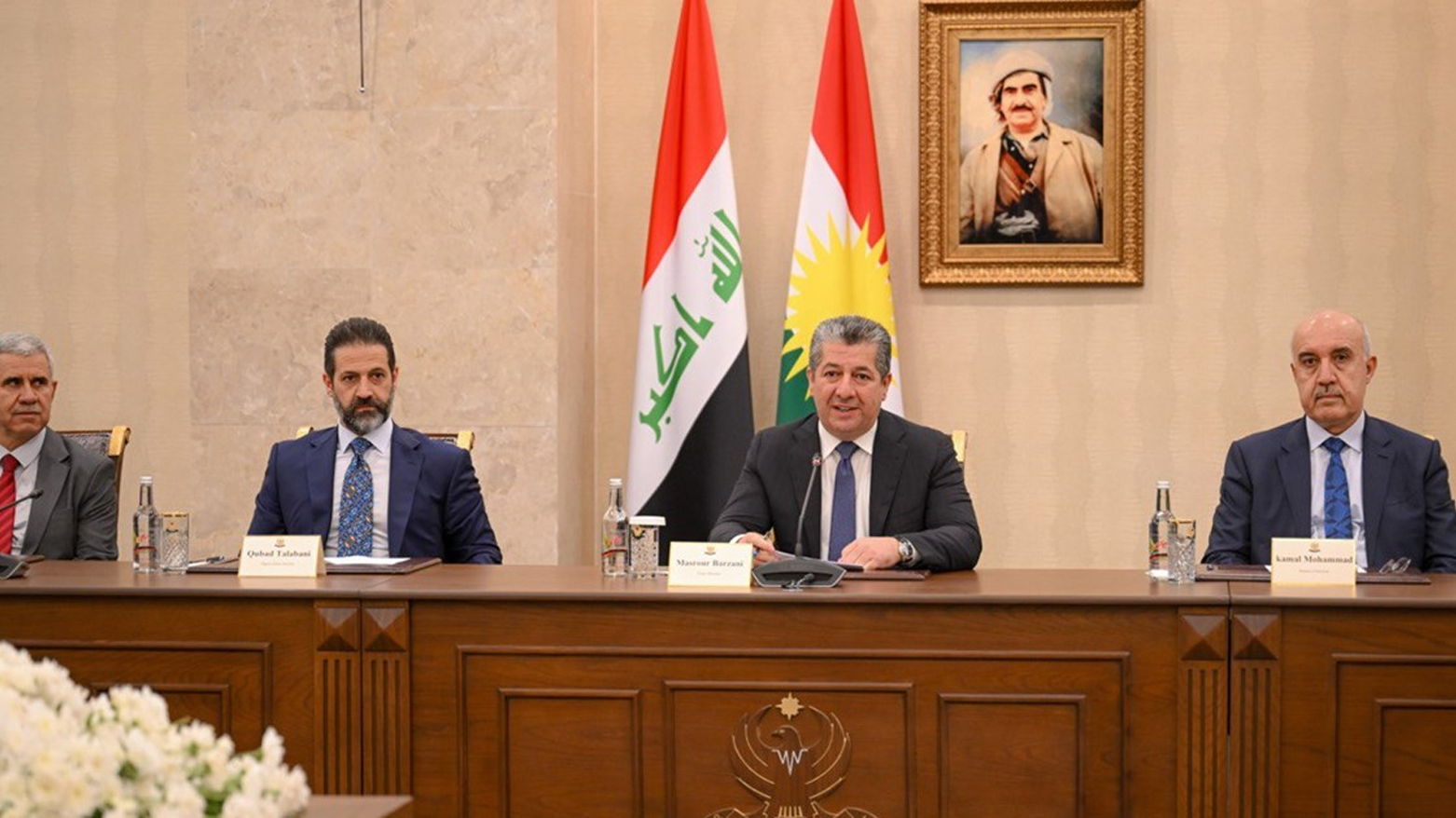PM Barzani Showcases Reforms, Reaffirms Kurdistan as Open for Business to Top US Trade Delegation
Prime Minister Masrour Barzani hosted a major delegation from the American Chamber of Commerce, highlighting the KRG's economic reforms in energy, agriculture, and digital services, and reaffirming the Kurdistan Region's readiness to facilitate American investment.
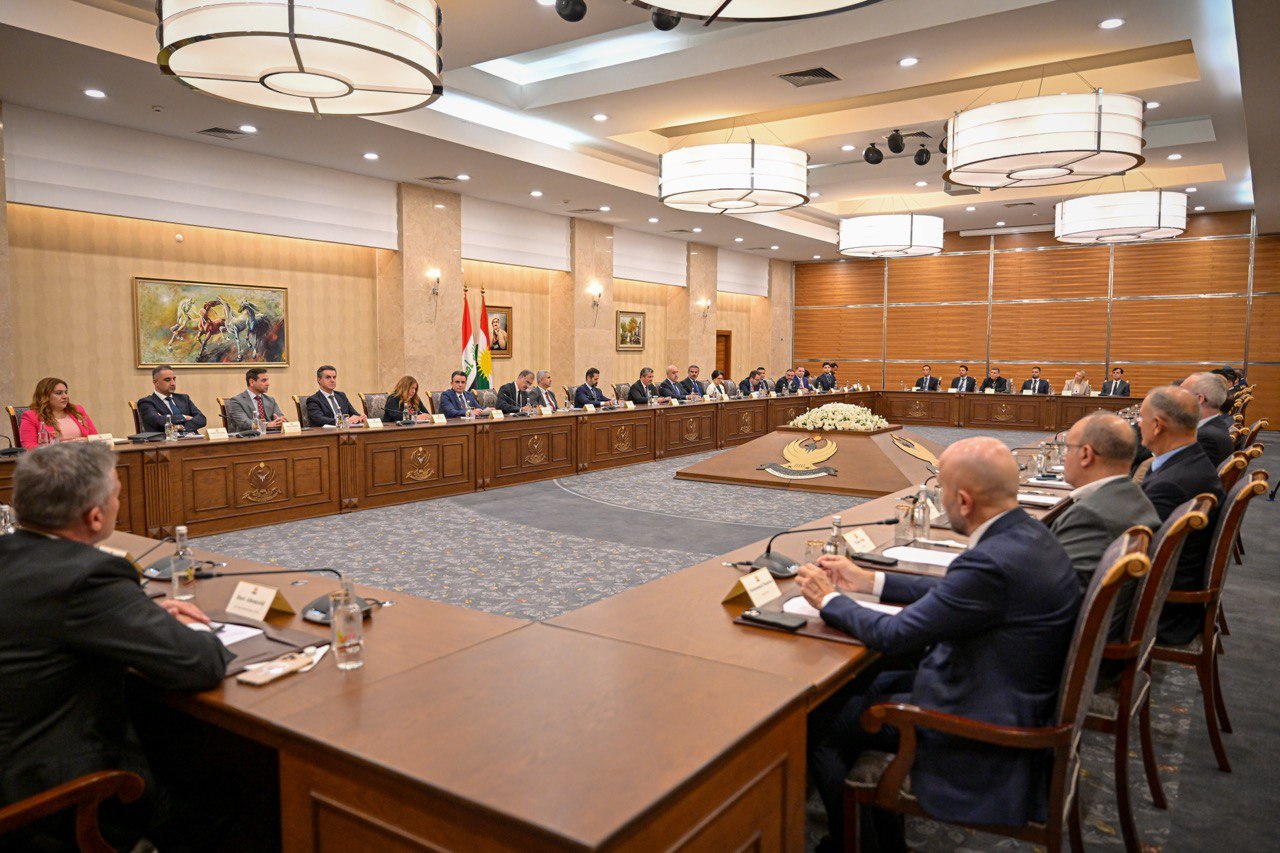
ERBIL (Kurdistan24) – Kurdistan Regional Government (KRG) Prime Minister Masrour Barzani, alongside Deputy Prime Minister Qubad Talabani, on Tuesday hosted a high-level delegation from the American Chamber of Commerce, reaffirming the Kurdistan Region's readiness to provide all necessary facilities for American investors and highlighting the government's ambitious reform agenda aimed at creating a modern, diversified, and transparent economy.
The meeting, which included a large number of representatives from prominent American companies, marks a significant step in the KRG's concerted effort to deepen its economic partnership with the United States and pivot the long-standing relationship beyond security cooperation toward a new era of robust trade and investment.
The high-profile meeting, held on September 9, was headed by Steve Lutes, the executive director of Middle East Affairs at the U.S. Chamber of Commerce, and was also attended by the U.S. Consul General in Erbil, Wendy Green.
Prime Minister Barzani began by extending a warm welcome to the delegation and expressing the Kurdistan Region's profound thanks and appreciation for the consistent cooperation and support it has received from the United States over the decades.
He then provided a detailed overview of the KRG's ninth cabinet's transformative reform program, which is centered on economic diversification.
The Prime Minister specifically shed light on progress in key sectors such as energy and agriculture, the modernization of the banking system, and the digitalization of public services.
As tangible evidence of this progress, he pointed to the success of two flagship initiatives: the "MyAccount" project, which aims to digitize the payment of public sector salaries and expand financial inclusion, and the "Runaki" project, which is focused on improving electricity services.
The Prime Minister's message was one of unequivocal openness to American business, as he reiterated the Kurdistan Region's commitment to creating a favorable and secure environment for both local and foreign investors.
In response, Steve Lutes, speaking on behalf of the American business delegation, expressed his gratitude to the KRG for its warm reception and affirmed the delegation's strong desire to develop and expand trade relations with the Kurdistan Region.
The meeting concluded with an interactive session in which both the Prime Minister and the Deputy Prime Minister answered questions and addressed the remarks and observations of the visiting American business leaders.
This direct engagement with the American business community is the culmination of a concerted push by both Kurdish and American officials to strengthen economic ties. The visit follows a "monumental" trade conference held in Erbil just a day earlier, which brought together Kurdish and American officials and business leaders to explore new partnership opportunities.
At that conference, U.S. Consul General Wendy Green delivered a keynote speech in which she emphasized Washington’s unwavering commitment to its economic partnership with the Kurdistan Region. She described the region as "hungry for US investment and products" and encouraged American businesses to seize the opportunities available.
"By exploring new markets and connecting with potential partners, you’re building bridges between our two countries," she stated, noting that the strong turnout from both government and industry highlighted the "deep and enduring connection" between the United States and the Kurdistan Region.
Consul General Green has been a vocal advocate for shifting the focus of the U.S.-Kurdistan relationship. Speaking at the KRG Economic and Trade Cooperation Conference on Monday, she stressed that while past cooperation had been centered on security, the time had come to "lay the foundations of trade partnership."
"My answer was: trade," she said, recalling her response to questions about the future of bilateral ties. This vision, she noted, is shared at the highest levels in Washington and is seen as the key to making the relationship stronger and more sustainable.
She also acknowledged that challenges remain in the business climate, including issues related to customs and fiscal transparency, but assured the delegates that the U.S. Consulate would continue to work closely with KRG and Iraqi officials to create a more favorable environment for investment.
The KRG has been equally clear about its strategic vision. The region's Interior Minister, Rebar Ahmed, also speaking at the conference, emphasized that Prime Minister Masrour Barzani’s recent visit to Washington had opened a new chapter in diplomacy and trade.
He framed the Kurdistan Region as a reliable, stable, and secure destination for investment, a message reinforced by the government's top priority of ensuring domestic stability to preserve investor confidence.
However, he also issued a sober reminder of the persistent security threats, warning that ISIS continues to pose a danger in certain disputed areas and that militia attacks targeting Kurdistan’s infrastructure risk undermining stability. For this reason, he stressed, coordination with U.S. partners in security and infrastructure protection remains "indispensable."
The relationship between the Kurdistan Region and the United States has been forged over decades of shared political and security challenges, from the establishment of the no-fly zone in 1991 that protected Kurdish civilians from Saddam Hussein’s regime to the crucial partnership during the war against ISIS.
The Peshmerga emerged as one of America's most vital and effective allies, and U.S. military support was instrumental in the defeat of the extremist group. However, as Tuesday's high-level meeting demonstrates, both sides are now firmly focused on building a new pillar for this enduring alliance—one grounded not just in shared security interests, but in a dynamic and sustainable economic partnership.
